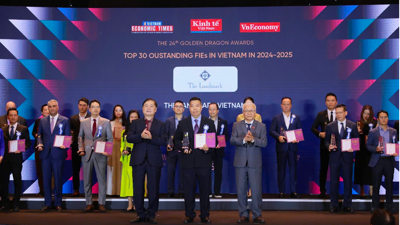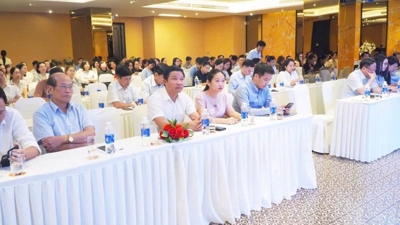Eight in 10 people in Vietnam actively seeking economic empowerment - Herbalife Asia Pacific Survey
Herbalife, a premier health and wellness company, has recently released the findings of its latest Asia Pacific Economic Empowerment Survey, which showed that more than eight in 10 people in Vietnam (82%) are currently taking steps to become more “economically empowered”.

The top actions taken include learning about personal finance, setting clear financial goals, investing in education and skill development, and starting a business or side job.Commissioned by Herbalife and conducted by OnePoll, the survey defined “economic empowerment” as providing people with the education, training, and skills that they need to find a job, earn an income, and become self-supporting. A total of 4,500 respondents from Asia Pacific, including 1,000 people from Vietnam participated in the survey.
Almost half of the Vietnamese respondents (48%) said that their standard of economic empowerment has changed in the past five years, as a result of the pandemic and rise in inflation.
Some of the main barriers to achieving economic empowerment were a lack of resources to invest in ideas, not having the right skills for growth in a job, and limited access to credit, money, or other financial services.
Additionally, there was strong sentiment (76%) that starting one’s own business or doing freelance work felt like the only way to become economically empowered.
“Recent years have made it harder to achieve economic empowerment amidst inflation, business closures and a tougher lending environment. In today’s shifting employment landscape, there are a number of opportunities available for individuals looking to achieve economic empowerment by starting their own business,” said Mr. Vu Van Thang, General Manager for Herbalife Vietnam and Cambodia.

According to the findings, economic empowerment varies by country. One in two respondents from Vietnam (50%) said that it was easier to become economically empowered where they live compared to other countries.
“I am highly impressed by the findings that the majority of Vietnamese respondents are taking steps to become more economically empowered. I believe that education, training and effective support from a like-minded entrepreneurial community, are some of the key factors that help aspiring entrepreneurs achieve economic empowerment,” said Mr. Thang.
The main reasons holding Vietnamese respondents back from being economically empowered included:
- I don’t have the resources I need to invest in my ideas - 41%
- I don’t have the right skills for growth in my job/to get the career I want - 40%
- Lack of opportunities for education/additional education - 26%
- The current economic situation in my country - 22%
- Limited access to credit, money, or other financial services - 21%
Key actions taken by respondents in Vietnam to be more economically empowered included:
- Educating myself about personal finance, budgeting, investing - 60%
- Setting clear financial goals, including saving money regularly and/or paying off debts - 60%
- Investing in education and skill development that aligns with my goals - 54%
- Starting my own business/starting a “side job” to diversify where my income is coming from - 43%
- Working to build a strong personal and/or professional network - 39%
The survey also revealed the differences in how various age groups in Vietnam viewed economic empowerment:
- Gen Zs and Millennials (77% and 85% respectively) were more aware of their economic empowerment in the past five years, and Millennials (85%) are the most active in taking steps to improve their situation.
- Millennials and Gen X (77% and 78%) are more likely to view starting a side job or their own business as the only way to become economically empowered.
- Top two reasons making it more difficult for Gen Zs and Millennials to become economically empowered were education level and social position.







